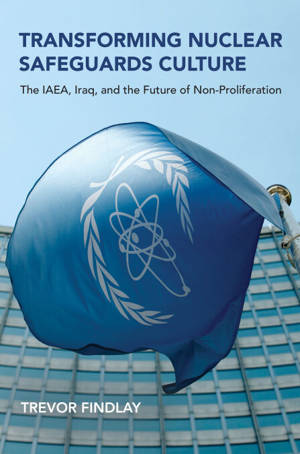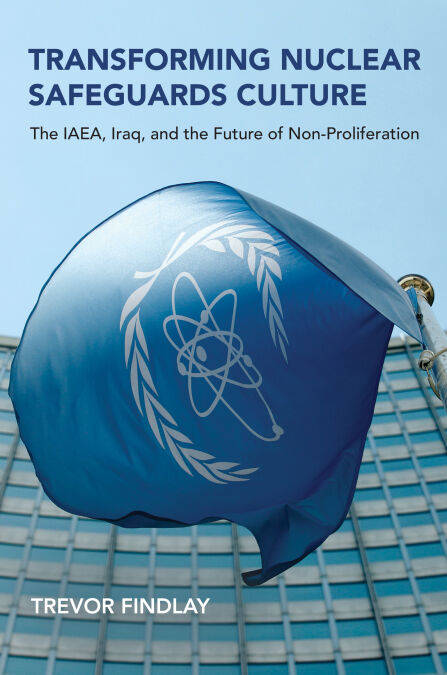
Bedankt voor het vertrouwen het afgelopen jaar! Om jou te bedanken bieden we GRATIS verzending (in België) aan op alles gedurende de hele maand januari.
- Afhalen na 1 uur in een winkel met voorraad
- In januari gratis thuislevering in België
- Ruim aanbod met 7 miljoen producten
Bedankt voor het vertrouwen het afgelopen jaar! Om jou te bedanken bieden we GRATIS verzending (in België) aan op alles gedurende de hele maand januari.
- Afhalen na 1 uur in een winkel met voorraad
- In januari gratis thuislevering in België
- Ruim aanbod met 7 miljoen producten
Zoeken
Transforming Nuclear Safeguards Culture E-BOOK
The IAEA, Iraq, and the Future of Non-Proliferation
Trevor Findlay
€ 39,42
+ 39 punten
Omschrijving
The role of organizational culture in international efforts to stop the spread of nuclear weapons.
In Transforming Nuclear Safeguards Culture, Trevor Findlay investigates the role that organizational culture may play in preventing the spread of nuclear weapons, examining particularly how it affects the nuclear safeguards system of the International Atomic Energy Agency (IAEA), the paramount global organization in the non-proliferation field. Findlay seeks to identify how organizational culture may have contributed to the IAEA’s failure to detect Iraq’s attempts to acquire illicit nuclear capabilities in the decade prior to the 1990 Gulf War and how the agency has sought to change safeguards culture since then. In doing so, he addresses an important piece of the nuclear nonproliferation puzzle: how to ensure that a robust international safeguards system, in perpetuity, might keep non-nuclear states from acquiring such weapons.
Findlay, as one of the leading scholars on the IAEA, brings a valuable holistic perspective to his analysis of the agency’s culture. Transforming Nuclear Safeguards Culture will inspire debate about the role of organizational culture in a key international organization—a culture that its member states, leadership, and staff have often sought to ignore or downplay.
In Transforming Nuclear Safeguards Culture, Trevor Findlay investigates the role that organizational culture may play in preventing the spread of nuclear weapons, examining particularly how it affects the nuclear safeguards system of the International Atomic Energy Agency (IAEA), the paramount global organization in the non-proliferation field. Findlay seeks to identify how organizational culture may have contributed to the IAEA’s failure to detect Iraq’s attempts to acquire illicit nuclear capabilities in the decade prior to the 1990 Gulf War and how the agency has sought to change safeguards culture since then. In doing so, he addresses an important piece of the nuclear nonproliferation puzzle: how to ensure that a robust international safeguards system, in perpetuity, might keep non-nuclear states from acquiring such weapons.
Findlay, as one of the leading scholars on the IAEA, brings a valuable holistic perspective to his analysis of the agency’s culture. Transforming Nuclear Safeguards Culture will inspire debate about the role of organizational culture in a key international organization—a culture that its member states, leadership, and staff have often sought to ignore or downplay.
Specificaties
Betrokkenen
- Auteur(s):
- Uitgeverij:
Inhoud
- Aantal bladzijden:
- 384
- Taal:
- Engels
- Reeks:
Eigenschappen
- Productcode (EAN):
- 9780262369763
- Verschijningsdatum:
- 20/06/2022
- Uitvoering:
- E-book
- Beveiligd met:
- Adobe DRM
- Formaat:
- ePub

Alleen bij Standaard Boekhandel
+ 39 punten op je klantenkaart van Standaard Boekhandel
Beoordelingen
We publiceren alleen reviews die voldoen aan de voorwaarden voor reviews. Bekijk onze voorwaarden voor reviews.









